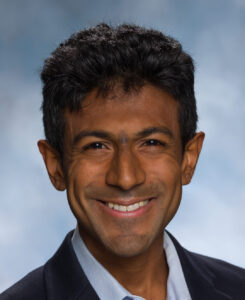 My research examines how the places we live influence our risk of cancer, specifically prostate cancer. Rates of aggressive prostate cancer vary dramatically within and between countries; yet few strong, reliable modifiable risk factors have been identified. These patterns suggest that although age and genetics play key roles in risk of lethal disease, there may be environmental factors that, if intervened on, could slow the rate of progression for men at high risk.
My research examines how the places we live influence our risk of cancer, specifically prostate cancer. Rates of aggressive prostate cancer vary dramatically within and between countries; yet few strong, reliable modifiable risk factors have been identified. These patterns suggest that although age and genetics play key roles in risk of lethal disease, there may be environmental factors that, if intervened on, could slow the rate of progression for men at high risk.
The work of my lab has clarified how prostate cancer risk operates at multiple levels, including at societal and neighborhood levels. We have shown that specific features of the neighborhood environment, such as green space exposure, may influence risk of lethal disease in urban settings, as well as mortality among men with prostate cancer. Favorable social environments and green space are associated with lower blood levels of inflammation, and even certain tumor-level markers of inflammation, independently of screening and other confounders. We are conducting studies to further understand how these neighborhood-level factors may interact with ancestry-related genetic risk, which may partly explain increases risks of aggressive disease in Black/African Americans. Through a career development award from the National Institutes of Environmental Health Sciences, I will develop a drinking water-based exposure model for Per- and Polyfluoroalkyl Substances (PFAS), a forever chemical that has been linked to risk of several cancers.
In addition to research on multilevel environmental and biological pathways that may contribute to higher prostate cancer susceptibility, we conduct research on geographic variation in appropriate care and treatment for prostate cancer. With my colleague, Dr. Timothy Rebbeck of the Dana-Farber Cancer Institute, I co-lead a registry-based cohort of men with prostate cancer, with generous support from the Prostate Cancer Research, UK charity. We are studying how variation in screening and treatment by population-level sociodemographics and neighborhood deprivation could guide social support policies to improve adherence to treatment and continuity of care for vulnerable populations. This cohort is further supported through support from the US Department of Defense for a Health Disparity Research Award (PI: Dr. Quoc-Dien Trinh, University of Pittsburgh Medical Center) that will test an intervention to provide transportation vouchers to men in underserved communities of Boston for referral of suspected prostate cancer based on screening tests. This approach to reducing health disparities through investing in a more compassionate and socially conscious health care system, pioneered and championed by the late Paul Farmer, among others, has produced impressive results in populations and nations experiencing poverty and social instability.
I am a resident member of the Cancer Prevention and Control Program at the Rutgers Cancer Institute of New Jersey, Section of Cancer Epidemiology and Health Outcomes. Read more about the great work my colleagues are doing here. In addition, I am grateful to be a member of the Rutgers Center for Environmental Exposures & Disease (CEED) Population Exposures and Outcomes (PEO) core.